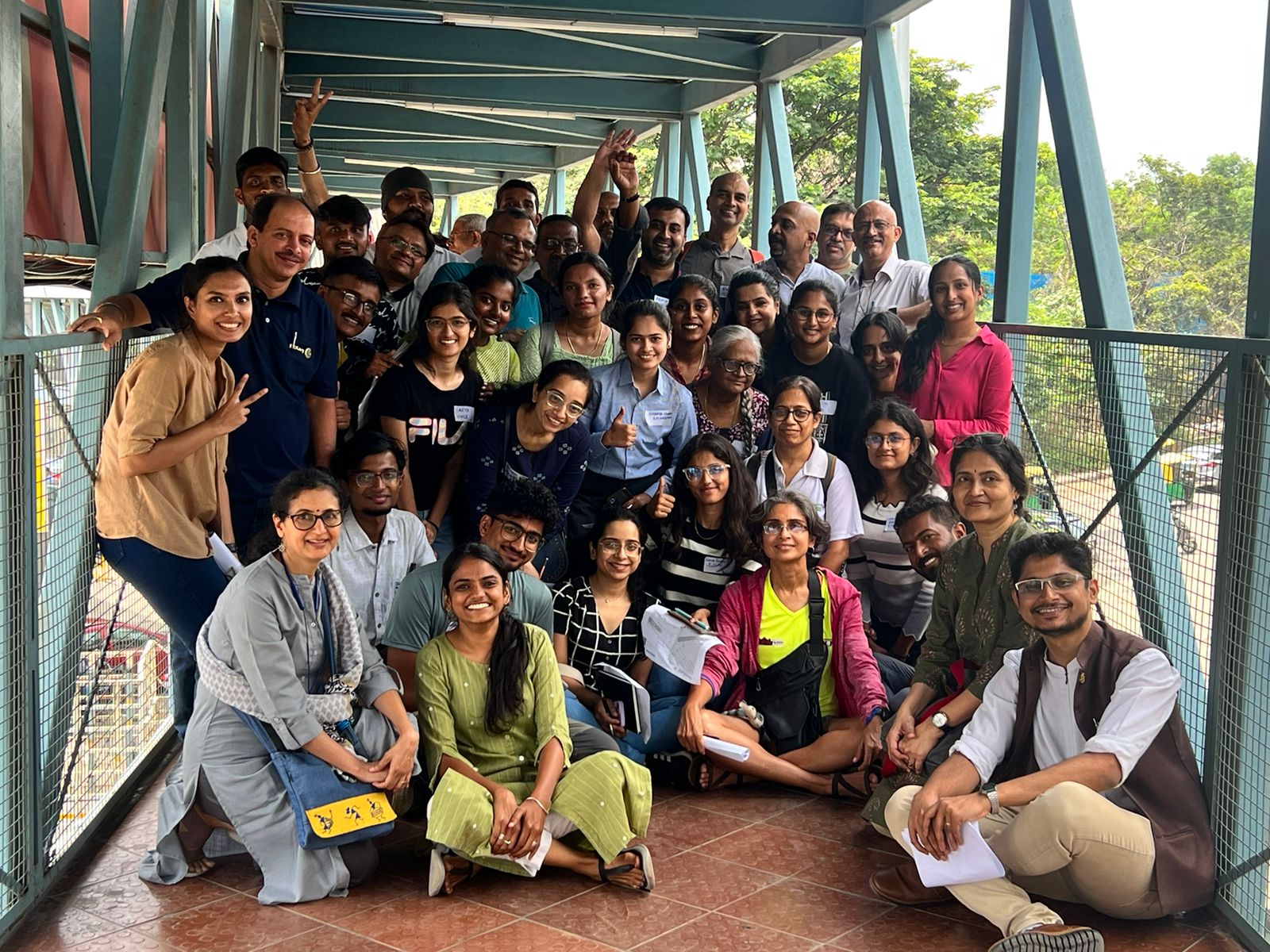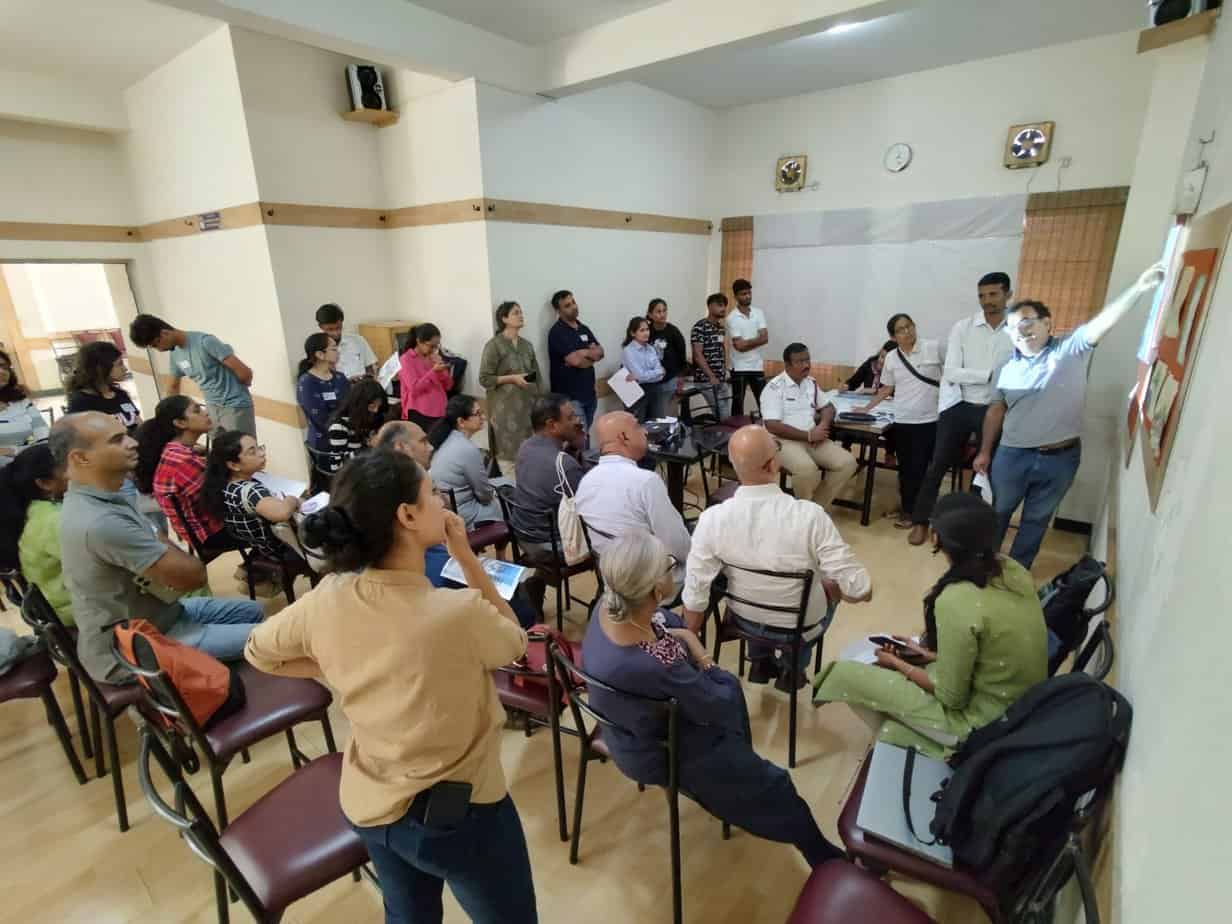Last week, we experimented with a new format learning session called the “action workshop”. The goal was to help participants learn and gain a clear understanding of next steps.
On Saturday, 5th October 2024, an action-oriented workshop titled “Urban Street Design: Fixing Iblur Junction” was held in Bengaluru, organized by Oorvani’s Civic Learning Hub in partnership with WRI and Socratus. The workshop sought to address the notorious traffic and safety issues at Iblur Junction, a critical intersection connecting Sarjapur Road and Bengaluru’s IT corridor to the rest of the city.
The event aimed to explore solutions to make Iblur Junction safer and more efficient for both pedestrians and commuters. This hands-on approach brought together citizens, urban planners, and traffic experts to better understand the intersection’s problems and propose actionable, data-backed solutions.
More about the methodology and the tactical interventions and design considerations from the teams here: Urban Street Design: Fixing Iblur Junction.
This article on Citizen Matters documents the takeaways.
Findings and recommendations
The site visit revealed that Iblur Junction is particularly dangerous for pedestrians. Key issues identified included the lack of proper footpaths, pedestrian crossings, lane markings, and signage. The junction suffers from poor lane management, with four lanes suddenly merging into two, creating inevitable bottlenecks.
The immediate recommendations focused on enhancing pedestrian safety. These included pedestrian markings, traffic calming measures, pedestrian refuge islands, and traffic signal adjustments.
Participants also suggested tactical urbanism measures, such as temporary bollards and signage, which could be implemented in the short term without requiring major budget allocations. For long-term improvements, the junction will require more significant infrastructural changes.
These recomendations were also shared with BBMP’s Suraksha 75 project team.

Next Steps
A follow-up group has been formed by the workshop participants to ensure continued advocacy and action on the recommendations. Additionally, several citizens have expressed interest in organising similar workshops in other areas, such as RR Nagar.
This collaborative approach brings together officials, experts, and the public to co-create solutions that address urban issues from multiple perspectives. The success of this workshop opens the door for similar initiatives across the city, fostering stronger civic engagement in urban planning.

